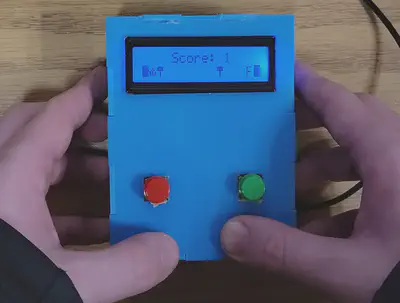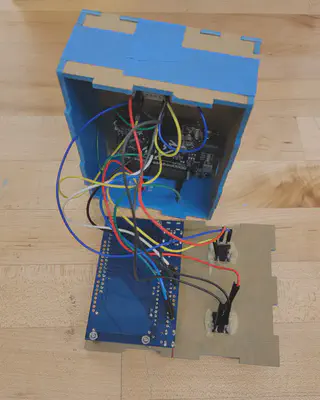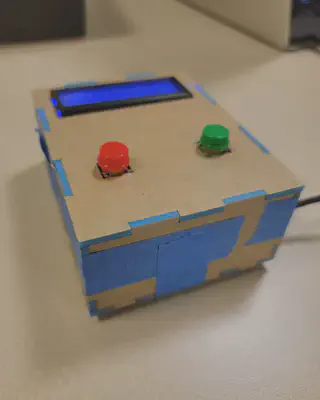Portable Game
Overview
The goal of this project was to design and manufacture an Arduino based game. Since the goal was very open-ended, my team and I decided to challenge ourselves by designing a game that could be packaged in a portable form factor. After some ideation, we decided upon a Columbia University themed infinite runner game similar to the Chrome Dino Game that pops up when there is no internet connection in Google Chrome. Ultimately, we used an Arduino Uno, 16x2 LCD, two buttons, a breadboard, jumper wires, and laser-cut acrylic to make our game.

Details
To begin the project, we wrote the Arduino code necessary to animate an object jumping over obstacles on an Arduino 16x2 LCD upon button press. We then added a score tracker that increases every second as well as a leaderboard that tracks the highest score until the Arduino loses power. After doing so, we drafted custom favicons for the jumping object and obstacles - a crown for the jumper as well as a mallet and the letter F for the obstacles. Originally, we were going to have the obstacles be a hammer and mallet, the tools behind the Columbia crown in the SEAS logo, but the icons looked too similar. As a result, we switched the hammer to the letter F to symbolize engineering students running away from failing grades.
After finishing the necessary code and icon design, we designed the pieces for the casing in SOLIDWORKS and laser cut them from acrylic. We then packaged all of the components into the casing, as seen below.

Before gluing the pieces together, we did a trial run of the device with tape holding it together to ensure we had no faulty connections.

During this testing, some sneaky classmates discovered that you could infinitely increase your score by holding down the jump button until you got bored. We quickly patched this by decrementing the score for every second the user had the crown in the air. Once we confirmed there were no further bugs and everything was good to go, we used acrylic glue to bond the casing together. The game was then demoed at the end-of-semester showcase, during which we were even able to have our game tested by the Dean of Columbia Engineering, Shih-Fu Chang!